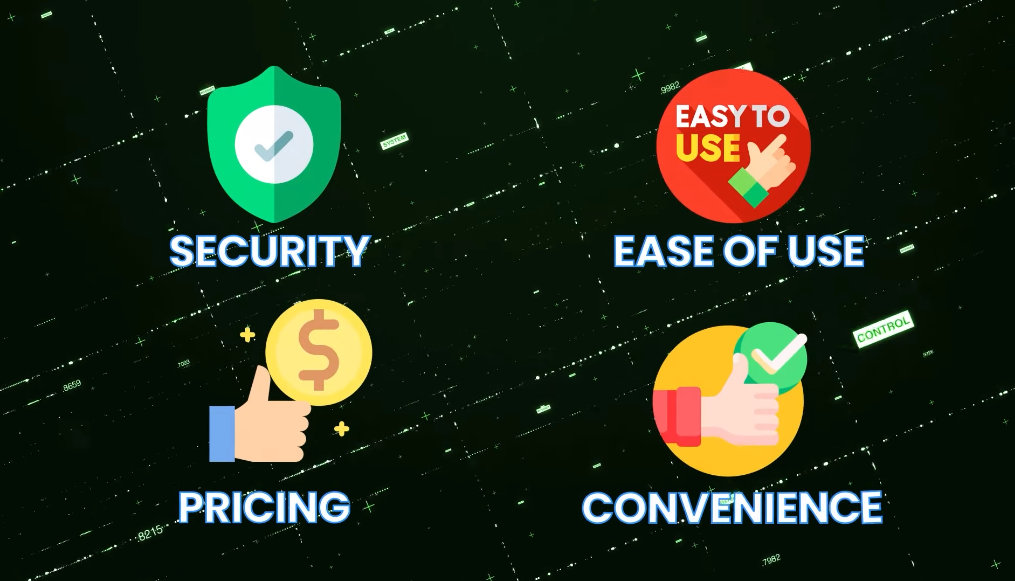Cloud storage is generally safe when you follow security practices. Reputable providers employ encryption, data redundancy, and authentication to protect your data. To keep your cloud storage data secure, choose a trusted provider, use strong, unique passwords, enable two-factor authentication, and keep your devices updated. Be cautious with sharing and consider encrypted cloud storage for sensitive information.
What is Cloud Storage?

Cloud storage is a service that allows you to store your data, such as files, photos, videos, and more, on remote servers maintained by a third-party provider. These servers are accessible over the Internet, allowing you to access your data from anywhere with an Internet connection.
Is Cloud Storage Safe?
Cloud storage providers invest heavily in security measures to protect your data. Here are some key security features that make cloud storage a safe option:
- Data Encryption: Most reputable cloud storage providers use encryption to protect your data during server transfer and storage. Your files are scrambled into unreadable code, which can only be decoded with the right encryption key.
- Data Redundancy: Cloud providers often store multiple copies of your data in different locations. This redundancy ensures that even if one server fails, your data remains accessible.
- Authentication: Access to your cloud storage account is typically protected by strong authentication methods, such as passwords, two-factor authentication (2FA), or biometrics, depending on the provider.
- Regular Updates and Patches: Cloud providers regularly update their systems to patch vulnerabilities and protect against emerging threats.
- Compliance with Regulations: Many cloud storage providers adhere to strict industry regulations and compliance standards, further enhancing data security.
Keeping Your Cloud Storage Data Secure:

Choose a Reliable Provider
The first step in ensuring the security of your cloud storage data is to choose a reputable provider. Research and select a provider known for its strong security features and track record safeguarding user data.
Use Strong, Unique Passwords
Avoid using easily guessable passwords like “123456” or “password.” Instead, craft complex passwords with upper- and lower-case letters, numbers, and special characters. Use a unique password for your cloud storage account to prevent a breach from affecting multiple accounts.
Enable Two-Factor Authentication
Two-factor authentication (2FA) adds an extra layer of security by requiring you to enter a one-time code sent to your mobile device or generated by an authentication app. Even if someone obtains your password, they won’t be able to access your account without this additional code.
Regularly Update and Patch Devices
The devices you use to access your cloud storage should be updated with the latest security patches and updates. Hackers often exploit vulnerabilities in outdated software, so staying current is essential.
Be Cautious with Sharing
While cloud storage allows easy sharing of files and folders, be cautious about what you share and with whom. Only share data with trusted individuals, and use the sharing settings provided by your cloud storage provider to control access.
Use Encrypted Cloud Storage
Some cloud storage services offer end-to-end encryption, which means your data is encrypted on your device and can only be decrypted on your device. While this adds an extra layer of security, it’s essential to remember that if you lose your encryption key, you may lose access to your data.
How Cloud Storage Is Replacing USB Drives?
USB Drives:

Limited Storage Capacity
USB drives, also known as flash drives or thumb drives, have been a reliable means of transferring and storing data for years. However, one of their significant limitations is their storage capacity. USB drives typically offer storage capacities ranging from a few gigabytes to a few terabytes. While this was sufficient for many years, the increasing volume of data generated today requires more extensive storage solutions.
Physical Vulnerability
Another drawback of USB drives is their physical vulnerability. They are small, portable devices easily lost, damaged, or stolen. When a USB drive is lost or falls into the wrong hands, the stored data can be compromised, leading to potential security breaches and data loss.
Lack of Accessibility
USB drives also suffer from limited accessibility. You must have a physical drive to access data stored on a USB drive. If you forget or misplace it, you won’t be able to access your data. This lack of remote accessibility can be a significant inconvenience in today’s world, where remote work and on-the-go access to data are increasingly important.
The Rise of Cloud Storage
Vast Storage Capacity
Cloud storage, on the other hand, offers practically limitless storage capacity. You can start with a few gigabytes and scale up to multiple terabytes or even petabytes of data as your needs grow. This scalability makes cloud storage ideal for individuals and businesses with vast data.
Enhanced Security
Cloud storage providers prioritize security and invest heavily in safeguarding user data. They employ robust encryption methods, data redundancy, and regular security updates to protect against data breaches. Additionally, cloud storage providers often comply with industry regulations, further enhancing data security.
Accessibility and Convenience
One of the most significant advantages of cloud storage is its accessibility and convenience. Your data is stored on remote servers, accessible from any device with an internet connection. You can easily access your files and data at home, in the office, or on the go.
Automatic Backup and Sync
Cloud storage solutions often include features like automatic backup and synchronization. This means your data is continuously backed up and synced across multiple devices. You no longer need to worry about manually transferring files or losing data due to hardware failures.
Why Cloud Storage Is Overtaking USB Drives?
Cost-Effectiveness
Cloud storage is often more cost-effective than investing in numerous USB drives, especially when considering the expenses associated with physical storage devices, such as maintenance, replacement, and the risk of data loss.
Collaboration and Sharing
Cloud storage excels in collaboration and data sharing. Multiple users can access and work on the same document simultaneously, regardless of their physical location. This level of collaboration is challenging to achieve with USB drives, which require physical handoffs or manual file transfers.
Real-Time Updates
With cloud storage, updates and changes to files are reflected in real time. This means you always have access to the most current version of a document or file, eliminating confusion and version control issues that can occur with USB drives.
Conclusion
Cloud storage is generally safe when you take the necessary precautions. Reputable providers invest in robust security measures to protect your data, but it’s crucial to do your part in keeping your cloud storage data secure. Choose a trusted provider, use strong passwords, enable two-factor authentication, keep your devices updated, be cautious with sharing, and consider using encrypted cloud storage for sensitive information. By following these guidelines, you can enjoy the benefits of cloud storage while keeping your data safe from prying eyes.
Frequently Asked Questions (FAQs)
1. Is it safe to store sensitive documents in the cloud?
Yes, storing sensitive documents in the cloud can be safe if you follow security best practices. Choose a reputable provider, use strong passwords, enable two-factor authentication, and consider using encrypted cloud storage for added security.
2. Can cloud storage providers access my data?
Cloud storage providers can access your data to some extent, but reputable providers use encryption and strict security measures to protect your privacy. However, reviewing their terms of service and privacy policies is essential to understand their data handling practices.
3. What should I do if I forget my cloud storage password?
Most providers offer a password reset or recovery process if you forget your cloud storage password. This typically involves verifying your identity through email or mobile verification. Follow the provider’s instructions to reset your password securely.
4. Are there any free cloud storage options with good security?
Yes, some free cloud storage options offer reasonable security features. However, paid cloud storage plans often provide more robust security and storage options. Researching and choosing a plan that suits your needs and security requirements is essential.
5. Can I access my cloud storage data offline?
Accessing cloud storage data offline depends on the specific provider and their features. Some cloud storage services allow you to download files for offline access, while others may require an internet connection to access your data. Check your provider’s documentation for offline access options.
